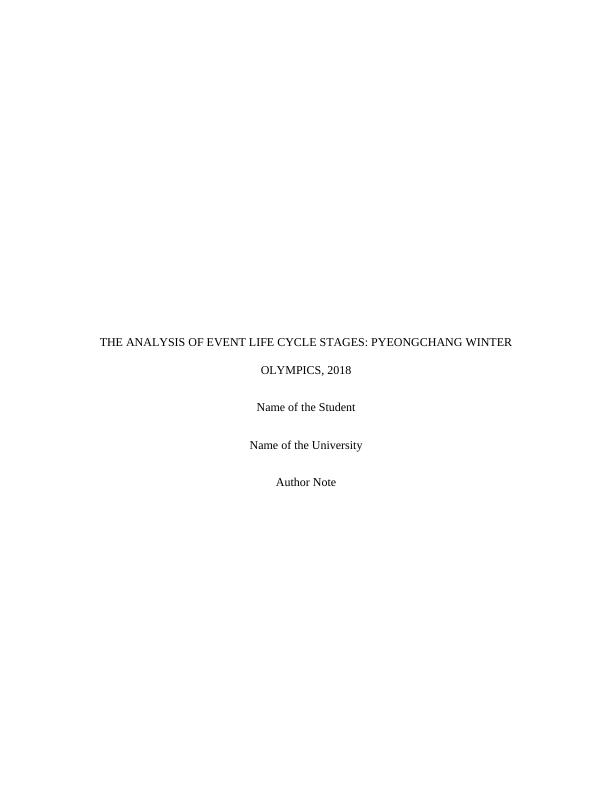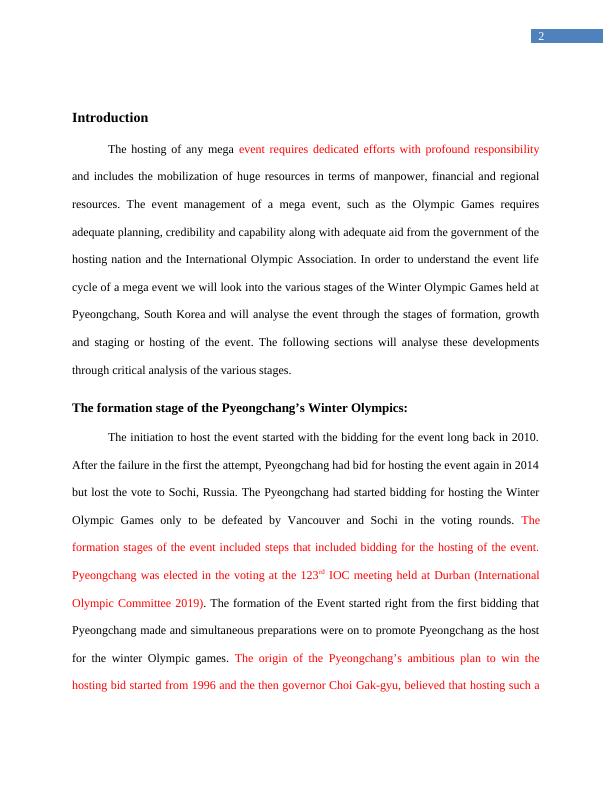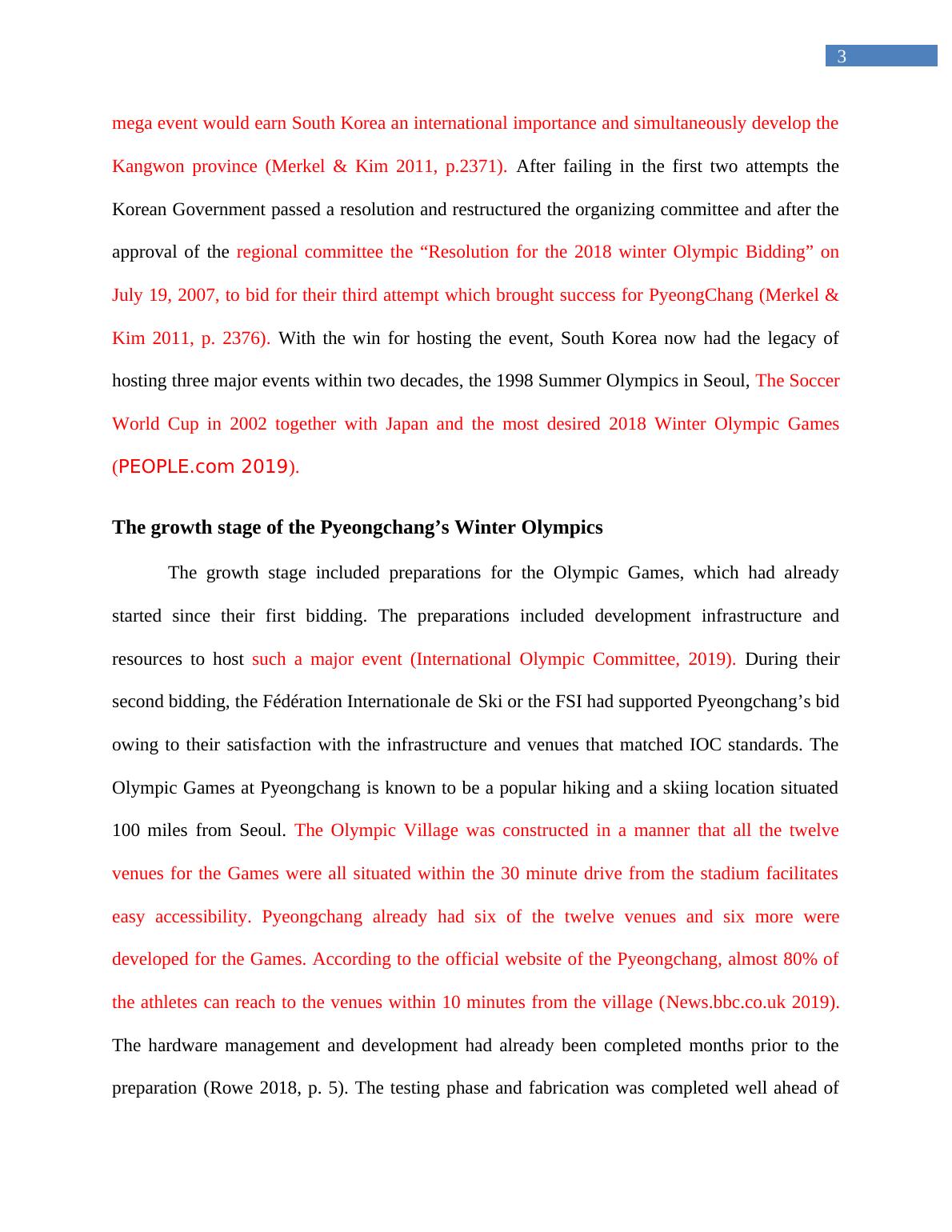Analysis of Pyeongchang Winter Olympics 2018
Analyzing the role of events management in the Tourism and Hospitality Industry through a case study analysis of the 2018 Winter Olympics in Pyeongchang, South Korea.
7 Pages1841 Words375 Views
Added on 2023-04-21
About This Document
This article provides a detailed analysis of the Pyeongchang Winter Olympics 2018, focusing on the stages of formation, growth, and staging of the event. It discusses the bidding process, preparations, and the hosting of the games. The article also offers recommendations for the future of the Olympics and the utilization of the event's resources.
Analysis of Pyeongchang Winter Olympics 2018
Analyzing the role of events management in the Tourism and Hospitality Industry through a case study analysis of the 2018 Winter Olympics in Pyeongchang, South Korea.
Added on 2023-04-21
ShareRelated Documents
End of preview
Want to access all the pages? Upload your documents or become a member.
Case Study Analysis of 2018 Winter Olympics Held at Pyeongchang
|8
|1947
|354
Analysis of 2018 Winter Olympic Games in Pyeongchang
|10
|1725
|70
Pyeongchang Winter Olympics 2018
|8
|1754
|360
PyeongChang Winter Olympics: Formation, Growth and Staging
|8
|1801
|467
Attraction and Event Management - Doc
|7
|1805
|129
Event Management
|9
|2216
|267



